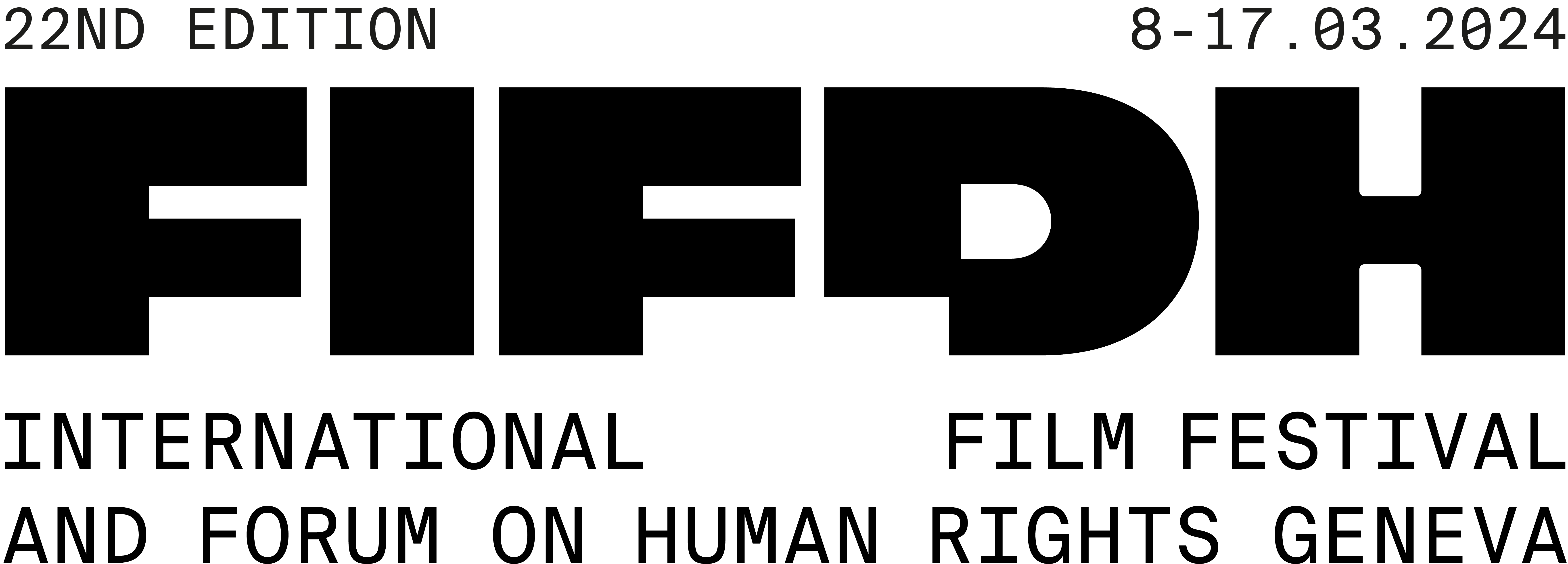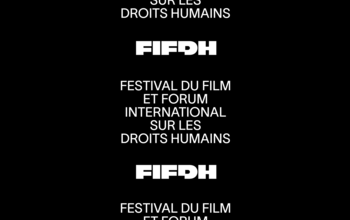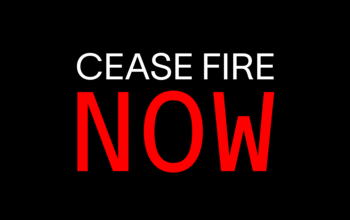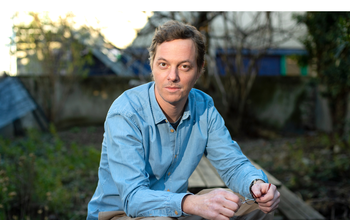Listen to utopia3, the new podcast in partnership with the FIFDH
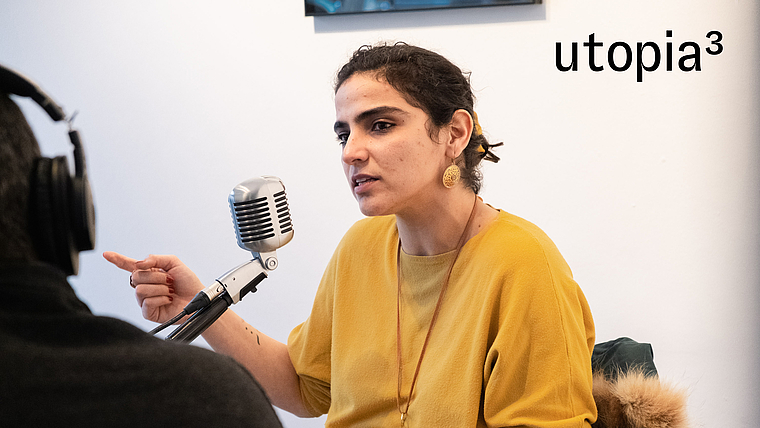
Activists, filmmakers, researchers and writers meet every year at the FIFDH in Geneva to debate the most pressing human rights issues. utopia3 invites them to express themselves on their background, their motivations and the meaning they give to the human rights of today and tomorrow.
The interviews are conducted by Davide Rodogno, Professor of International History at the Graduate Institute of International and Development Studies in Geneva, and by David Brun-Lambert, cultural journalist.
Episode 1 - Joe Sacco
Interview in English
The legendary cartoonist and reporter Joe Sacco has been criss-crossing the planet for 30 years through his prodigious immersive graphic investigations, interweaving past and present, with a focus on the stigmas of war and its tragic consequences. In this first episode of utopia3, Joe Sacco talks about being rooted and uprooted, the genesis of a good story, the aftermath of colonialism and the recent protests around the globe.
Joe Sacco's new book, Paying The Land, has just been published recently.
Episode 2 - Perla Joe Maalouli
Interview in English
Perla Joe Maalouli is one of the voices and one of the faces of the 2019 Lebanese Revolution. Sitting down in the ring, at the centre of the protest, with the protesters, facing the police and the security forces, she read poems in front of the Public Electricity building. She drove 300 Lebanese women to intercede with the militaries and avoided a possible blood bath. Perla Joe Maalouli is 27 years old, she is a filmmaker, a musician, a poet, a bigmouth, a rebel-born person.
Episode 3 - Yves Daccord
Interview in French
Yves Daccord spoke with Utopia3 on the eve of the end of his term as director general of the International Committee of the Red Cross (ICRC), a position he had held since 2010. A former journalist with the Radio Télévision Suisse (RTS), he joined the humanitarian organization in 1992 and has led operations in Israel, Sudan, Yemen, Chechnya and Georgia. In this interview (in French), Yves Daccord takes a retrospective and then prospective look at humanitarian action.
Episode 4 - Burhan Sönmez
Interview in English
Burhan Sönmez is a Kurdish author writing in Turkish. He used to work as a human rights lawyer in Istanbul before going into exile in Great Britain following serious injuries inflicted by the Turkish police. His books have received prestigious literary prizes. He now lives between Istanbul and Cambridge. In this episode, Burhan Sönmez speaks about his exile, the distinction between history and memory, freedom, our responsibility in the face of social amnesia, art and his unshakeable faith in the human being.
Burhan Sönmez's last book, Labyrinthe, has been published in French by the Editions Gallimard.
Episode 5 - Alaa Salah
Interview in Arabic, with simultaneous translation towards French by Sara Bencherif.
Alaa Salah is an architecture student. An anti-government protester, she became a major figure in the Sudanese Revolution. In April 2019, a photo of her taken by Lana Haroun, and then widely shared on social media, introduced her to the world. Nicknamed the "Woman in White" or the "Lady Liberty", the young woman from Khartoum explains in this interview how and why she became one of the voices of the Revolution at the age of 22.
Episode 6 - Ilse and Femke Van Velzen & Ruth Hopkins
Interview in English
IIlse and Femke van Velzen are internationally acclaimed, award-winning documentary Dutch filmmakers. Weapon of War, about systematic rape in war-torn Congo, was awarded the 2010 Golden Calf, the Dutch equivalent of the Oscar. For the documentary Prison for Profit (2019), they collaborated with British investigative journalist Ruth Hopkins.
Ruth Hopkins, an award winning investigative journalist, has produced several remarkable investigations about wrongful convictions, long-term pre-trial detention or police brutality in South Africa. With an LLM in International Law and Human Rights, Ruth Hopkins has also explored other areas of work. In addition to her journalistic work, she set up and taught a human rights course at a journalism college in the Netherlands. In 2013, she made a report on a South African prison run by the private security company G4S. In February 2020, she published the book Misery Merchants (Life and Death in a Private South African Prison), preceded by the release of Prison for Profit, a documentary adaptation of her investigation by the Van Velzen sisters.
Episode 7 - Lauren Anders Brown and Ayanda Dlamini
Interview in English
Lauren Anders Brown is the director of the documentary WOMENstruate. Ayanda Dlamini is an activist from Eswatini (formerly Swaziland) who fights to break down taboos related to menstruations. In this interview, our two guests discuss the stigmatization of women around the world and specifically in Africa during their menstrual cycle.
Lauren Anders Brown is a self-taught American documentary filmmaker who has been active for over ten years. Starting with television series (Ugly Betty, House of Cards, etc.) and award-winning feature films (Argo, We Need to Talk About Kevin, etc.), she has gradually moved into documentary filmmaking, investigating health-related topics in more than forty countries, often in collaboration with the United Nations. Her second feature-length documentary, WOMENstruate, was filmed in just six days - the equivalent of an average menstrual cycle. It features the testimony of Ayanda Dlamini, a 23-year-old student from the kingdom of Eswatini who campaigns for the reproductive rights of young people living with HIV.
Episode 8 - Andy Cohen
Interview in English
Andrew "Andy" Cohen is a freelance filmmaker and journalist whose work aims to contribute to "social change and the protection of human rights". He has produced, directed or written several award-winning documentaries including Ai Weiwei: Never Sorry (2012), The World Before Her (2012), Human Flow (2017), Ximei (2019) and Beijing Spring (2020).
In this interview, Andy Cohen talks about what led him to make Beijing Spring. Through a 16mm archive film hidden from the Chinese authorities for more than three decades, he reveals the censored history of the "Stars", a group of Chinese underground artists whose members, after the death of Mao Zedong, sought at all costs to express themselves freely and to protest - not without serious consequences later on.
Episode 9 - Max Richter
Interview in English
On the occasion of the release of his album Voices, a sumptuous ninth record matured over ten years, utopia3 spoke by telephone with the Anglo-German neoclassical composer Max Richter. An interview in which music is seen as a tool capable of questioning and perhaps reducing inequalities.
Max Richter looks back at the genesis of Voices and his initial intuition: the world is not moving in the right direction and certain positions that could not have been expressed until recently have become standardised in certain spheres. He witnessed the slowing down of the progressive turn the world seemed to have engaged with and the resurgence of xenophobia and extremism.
Episode 10 - Jonathan Nez
Interview in English
"The U.S. government has failed us". utopia3 interviewed Jonathan Nez, President of the Navajo Nation, one of the Native American communities most affected by the COVID-19 epidemic.
At a time when the Navajo nation was experiencing a record infection rate, it fought back fiercely, managing to contain the pandemic with radical but effective measures. Collective strength, resilience, discipline and common sense: in an interview we deliberately edited as little as possible, recorded on the Internet, President Jonathan Nez tells us how his people managed to keep a deadly virus at bay.
Subscribe to utopia3 on Spotify, Deezer, Apple Podcast or Ausha.
Follow utopia3 on Facebook, Instagram, Twitter and LinkedIn.
utopia3 is recorded at The Spot Podcast Factory studio in Geneva, in collaboration with the FIFDH. The series is produced by David Brun-Lambert and Davide Rodogno (editorial directors), Martial Mingam (art director), Julie Noyelle (coordinator) and Julien Babel (artwork).
